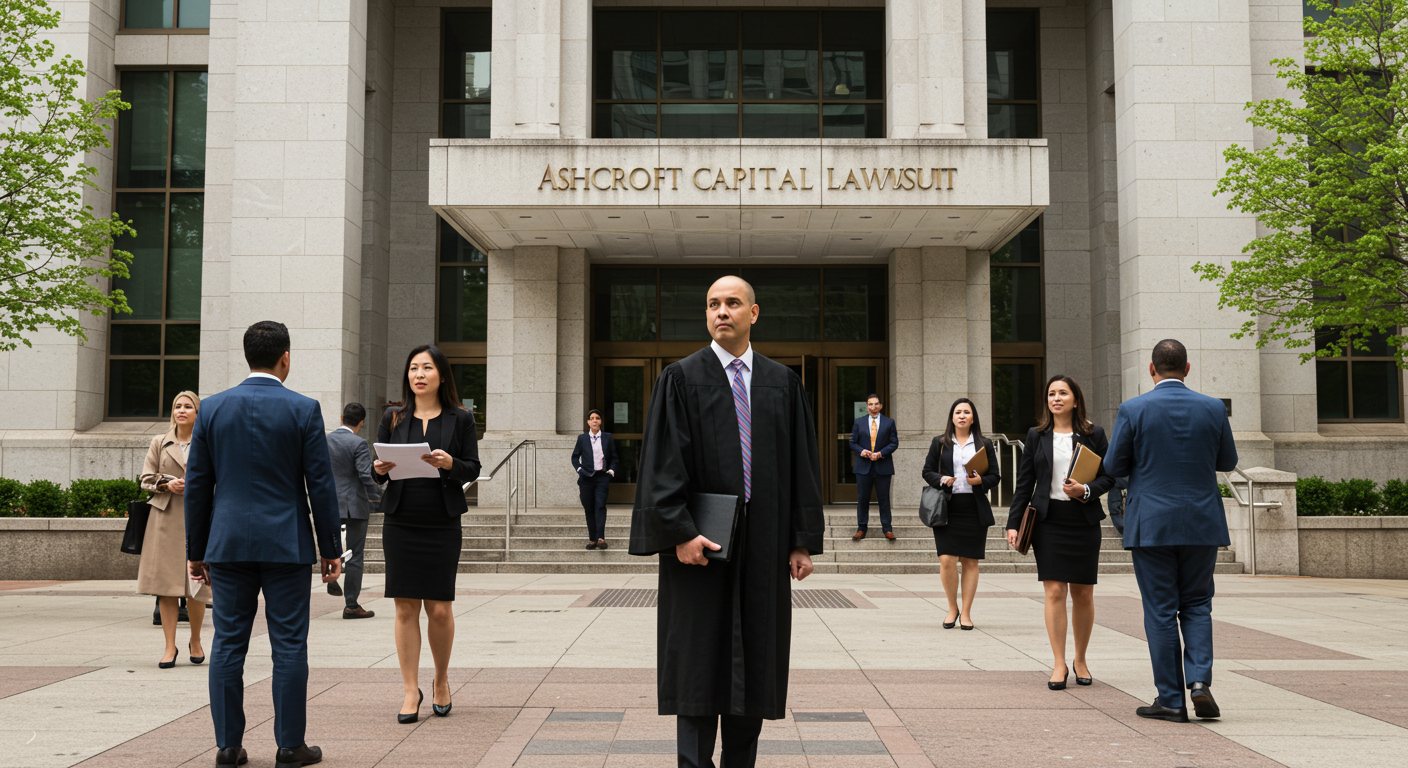Ashcroft Capital, a prominent real estate investment firm, has recently found itself embroiled in legal disputes that have drawn significant attention from investors, industry analysts, and legal experts. The Ashcroft Capital lawsuit raises critical questions about corporate governance, fiduciary responsibilities, and investor protections in the private equity and real estate sectors.
This article provides an in-depth analysis of the lawsuit, examining its origins, key allegations, legal arguments, and potential implications for the real estate investment industry.
Background on Ashcroft Capital
Ashcroft Capital is a New York-based real estate investment firm specializing in multifamily properties across the United States. Founded by Franklin Wallach, the company has built a reputation for acquiring and managing high-value apartment complexes, leveraging institutional capital to generate returns for investors.
The firm has been involved in several high-profile acquisitions, including large apartment portfolios in Texas, Florida, and the Sun Belt region, where demand for rental housing has surged in recent years.
However, despite its growth, Ashcroft Capital has faced scrutiny over its business practices, fee structures, and transparency, culminating in legal action from investors.
Overview of the Ashcroft Capital Lawsuit
The lawsuit against Ashcroft Capital centers on allegations of breach of fiduciary duty, mismanagement of funds, and lack of transparency in financial dealings. The plaintiffs—primarily investors and limited partners (LPs) in Ashcroft’s funds—claim that the firm engaged in practices that unfairly benefited the general partners (GPs) at the expense of investors.
Key Allegations in the Lawsuit
- Excessive and Undisclosed Fees
- Investors allege that Ashcroft Capital charged hidden fees, including inflated management fees, acquisition fees, and disposition fees, which were not fully disclosed in offering documents.
- Some claim that the firm double-dipped on fees, collecting payments from both investors and property operators without proper justification.
- Self-Dealing and Conflicts of Interest
- The lawsuit suggests that Ashcroft Capital engaged in self-dealing transactions, where related parties (such as affiliated management companies) received preferential treatment.
- There are accusations that the firm overpaid for properties from connected sellers, reducing investor returns.
- Misrepresentation of Investment Performance
- Plaintiffs argue that Ashcroft Capital misled investors about projected returns, occupancy rates, and property valuations.
- Some claim that the firm underreported expenses while exaggerating revenue projections to attract capital.
- Failure to Act in Investors’ Best Interests
- A core fiduciary duty of investment managers is to prioritize investors’ interests. The lawsuit alleges that Ashcroft Capital prioritized its own profits over maximizing returns for LPs.
Legal Arguments and Defense
Ashcroft Capital has denied any wrongdoing, arguing that all fees and transactions were properly disclosed and that investors were aware of the risks involved. The firm’s legal team may assert that:
- All fees were outlined in the fund agreements, and investors consented to them.
- Property valuations and performance metrics were based on standard industry practices.
- Any conflicts of interest were disclosed in compliance with securities laws.
However, if the court finds that Ashcroft Capital failed to meet its fiduciary obligations, the firm could face significant financial penalties, reputational damage, and regulatory scrutiny.
Potential Implications of the Lawsuit
1. Impact on Ashcroft Capital’s Operations
- A loss in court could force Ashcroft to restructure its fee arrangements, repay investors, or face restrictions on future fundraising.
- The firm’s ability to attract new capital may be severely hampered if trust in its governance erodes.
2. Broader Industry Repercussions
- The case could set a legal precedent for how private equity and real estate firms disclose fees and manage conflicts of interest.
- Increased regulatory scrutiny may follow, with agencies like the SEC examining similar firms for compliance issues.
3. Investor Confidence in Private Real Estate Funds
- If investors perceive that firms like Ashcroft Capital are not held accountable, capital inflows into private real estate funds could decline.
- Limited partners may demand greater transparency, lower fees, and stronger investor protections in future deals.
Conclusion
The Ashcroft Capital lawsuit highlights critical issues in the private equity and real estate investment sectors, particularly around fee transparency, fiduciary duties, and investor rights. As the case unfolds, its outcome could reshape industry standards and influence how investment firms operate moving forward.
For investors, this lawsuit serves as a reminder to conduct thorough due diligence before committing capital to private funds. For fund managers, it underscores the importance of ethical governance, clear disclosures, and alignment of interests with investors.
As legal proceedings continue, the real estate investment community will be watching closely to see whether Ashcroft Capital can defend its practices or if the court will mandate significant reforms.











